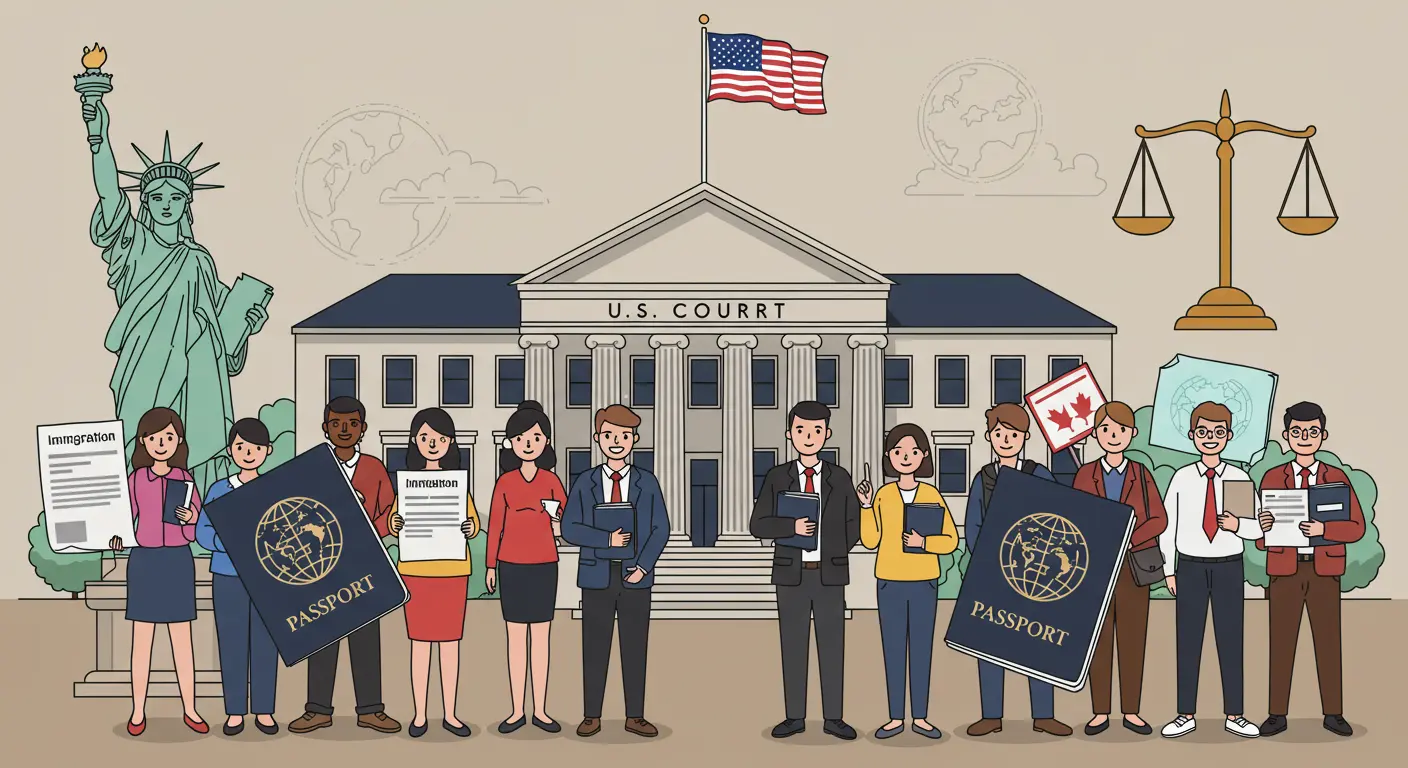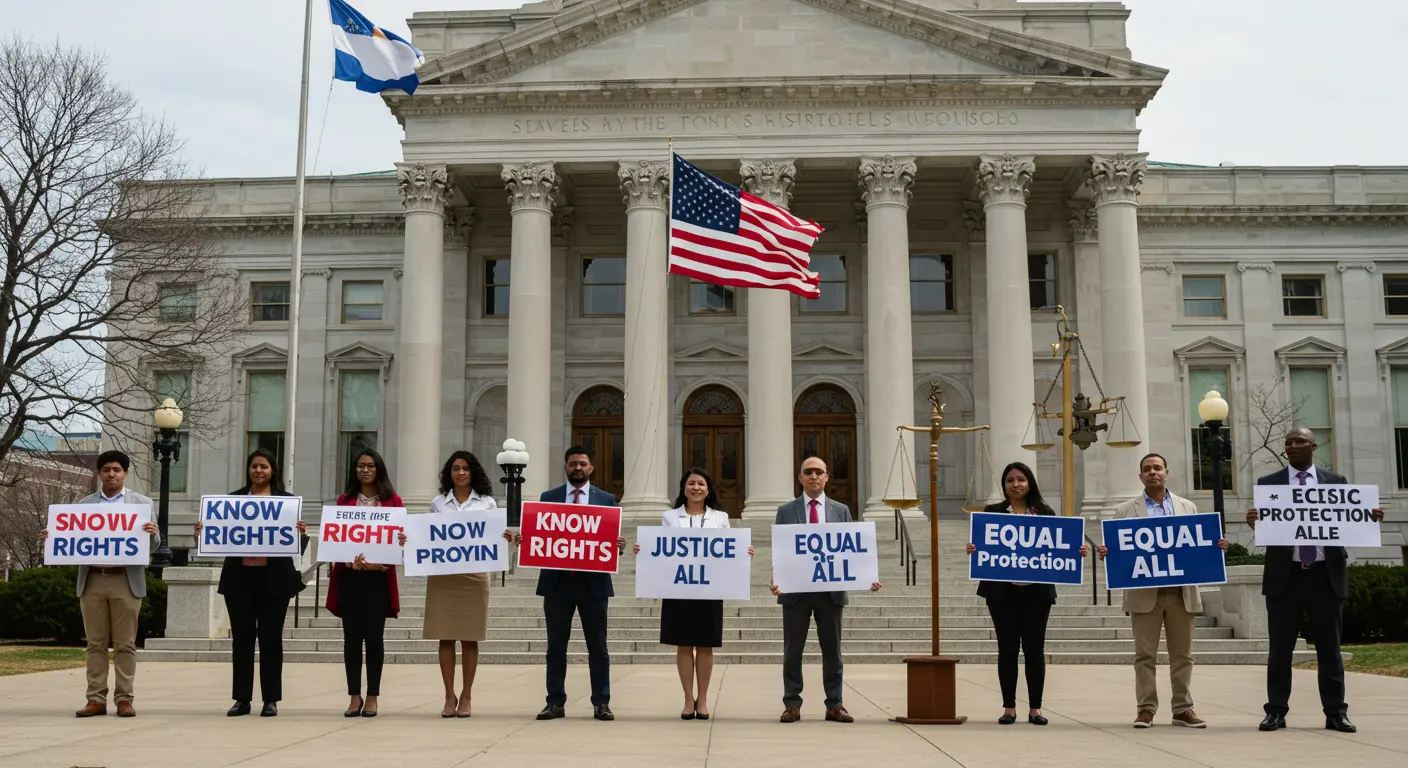Understanding US labor laws for immigrants is crucial for anyone working or planning to work in the United States. Whether you are a legal permanent resident, visa holder, asylum seeker, or undocumented worker, the U.S. offers certain protections to ensure fair treatment in the workplace.
In this comprehensive guide, we’ll break down immigrant rights under federal labor laws, explain common violations, and show you how to protect yourself. Let’s get started.

Why Labor Laws Matter for Immigrants
Many immigrants face language barriers, lack of legal knowledge, and fear of deportation. Unfortunately, this makes them vulnerable to workplace exploitation. Knowing US labor laws for immigrants helps ensure you’re treated fairly, paid properly, and working under safe conditions—no matter your immigration status.
Key US Labor Laws That Protect Immigrants
The following major labor laws protect most workers, including immigrants:
| Law Name | What It Covers | Applies To Immigrants? |
|---|---|---|
| Fair Labor Standards Act (FLSA) | Minimum wage, overtime pay, and recordkeeping | Yes |
| Occupational Safety and Health Act | Safe working conditions | Yes |
| Title VII of the Civil Rights Act | Prohibits discrimination based on race, color, religion, sex, national origin | Yes |
| Immigration and Nationality Act (INA) | Protects against unfair employment practices | Yes (for work-authorized) |
| Family and Medical Leave Act (FMLA) | Unpaid leave for family/medical reasons | Yes (if eligible) |
These laws cover workers regardless of immigration status in most cases. Even undocumented immigrants are protected under laws like FLSA and OSHA.
Undocumented Workers and Labor Rights
A common misconception is that undocumented workers have no rights—but that’s false. While undocumented workers cannot legally work, they are still covered by many federal labor laws. For example:
-
You must be paid the minimum wage and overtime if you work more than 40 hours/week.
-
You have the right to a safe workplace.
-
You can file a complaint with the Department of Labor (DOL) without fear of deportation in most cases.
-
You cannot be sexually harassed or racially discriminated against at work.
Although certain protections like unemployment benefits and union voting may not apply, US labor laws for immigrants still provide essential safeguards.
Common Labor Violations Faced by Immigrants
Here are some of the most common abuses immigrants face in the workplace:
-
Being paid below minimum wage
-
Working overtime without extra pay
-
Forced to work in unsafe conditions
-
Threats of deportation when complaining
-
Withheld wages or stolen tips
-
Sexual harassment or racial discrimination
Employers may take advantage of immigrants’ fears. But remember: Federal labor laws apply to all workers.
What Should You Do If Your Rights Are Violated?
If you believe your labor rights are being violated, you can take the following actions:
-
Document everything – Keep records of hours worked, pay received, and communication.
-
Contact a local labor rights organization – They can guide you confidentially.
-
File a complaint with the Department of Labor – You can remain anonymous.
-
Consult a labor attorney – Many offer free or low-cost legal help for immigrants.
You can also call the Wage and Hour Division of the DOL at 1-866-487-9243 or visit www.dol.gov.
Can Immigrants Join Unions?
Yes. Immigrants—documented or undocumented—have the legal right to join or form a union under the National Labor Relations Act (NLRA). Unions can:
-
Help negotiate better wages
-
Protect against wrongful termination
-
Offer legal assistance in case of disputes
Unions do not report immigration status. They are there to protect workers’ rights.
Temporary and Seasonal Workers
Temporary work visa holders, such as H-2A (agricultural) or H-2B (non-agricultural) workers, are often targets for exploitation. Under US labor laws:
-
Employers must pay the prevailing wage
-
Must provide safe housing and meals (if applicable)
-
Must not retaliate if a worker reports abuse
If your rights are violated, you can still report your employer—even if your visa is tied to that job.
Your Rights Under State Laws
While federal labor laws apply nationwide, many states have stronger worker protections. For example:
-
California and New York have higher minimum wages.
-
Some states require paid sick leave and offer more protection for domestic workers.
Be sure to research your specific state labor laws in addition to understanding the US labor laws for immigrants.
FAQs – US Labor Laws for Immigrants
Q1: Can undocumented immigrants file a wage complaint?
Yes. The Department of Labor allows anyone—regardless of immigration status—to file a wage complaint.
Q2: Will I be deported for reporting my employer?
No. Labor agencies do not ask about or share immigration status. Retaliation for reporting is illegal.
Q3: What is the minimum wage for immigrants in the US?
The federal minimum wage is $7.25/hour, but many states have higher rates. Immigrants must be paid the same as any other worker.
Q4: Do I need a Social Security Number to be protected?
No. Protections apply regardless of SSN or work permit, though some benefits may require legal work status.
Q5: Can I report unsafe working conditions anonymously?
Yes. OSHA allows anonymous complaints, and they are taken seriously.
Final Thoughts
US labor laws for immigrants provide vital protection against exploitation, discrimination, and unsafe conditions. Whether you are a new arrival or long-time worker, knowing your rights empowers you to work safely and confidently. Remember, your immigration status does not erase your dignity or your rights.



